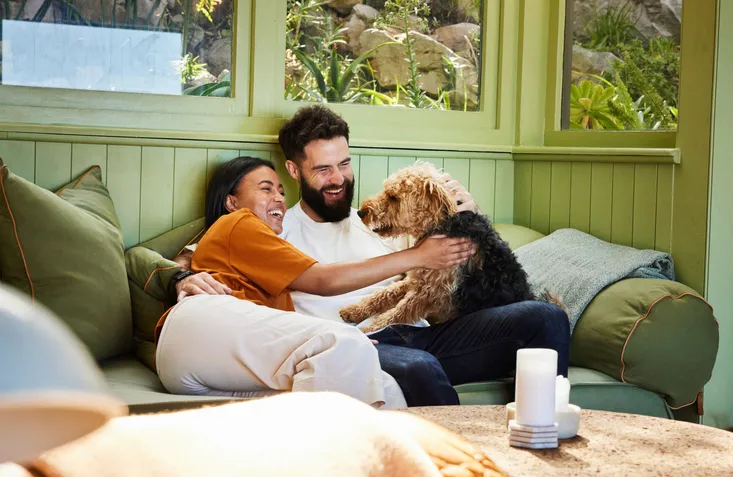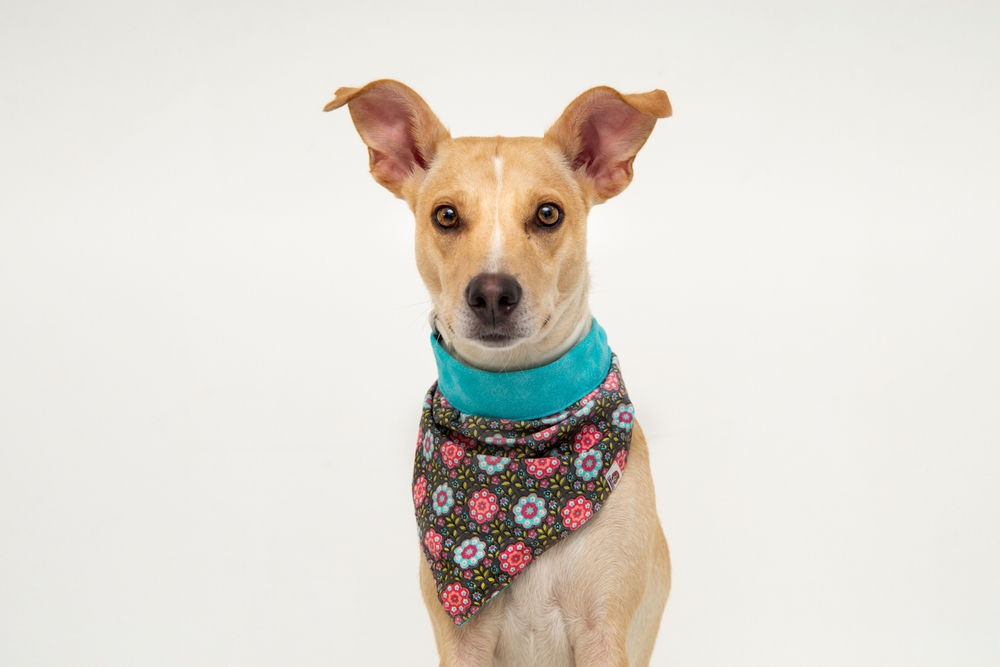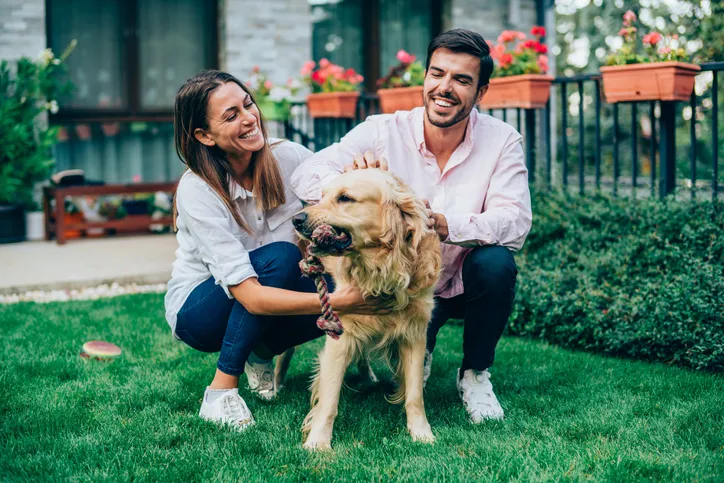Bringing a dog into your life is a big decision, and choosing a breed or mix that matches your lifestyle is important. Whether you’re an active adventurer or a laid-back homebody, picking the perfect pup to fit seamlessly into your lifestyle guarantees you both happiness.
1. Assess Your Activity Level

Before choosing a dog, think about how active you are. A high-energy dog like a Border Collie or Labrador Retriever will thrive if you love hiking and running. If you’re more of a couch potato, consider a breed that’s happy with moderate exercise, like a Bulldog or a Basset Hound. Matching your dog’s energy level to your own is key to a harmonious life together.
2. Consider Your Living Space

Do you live in a spacious house with a big backyard or a compact apartment? Large breeds or dogs with lots of energy, like German Shepherds, may need more room to run and play, while smaller breeds like Chihuahuas or Dachshunds are usually content with smaller spaces. Make sure your home environment can comfortably accommodate your dog’s needs.
3. Think About Your Schedule

How much time do you have to dedicate to a dog? Some breeds are highly independent and can be left alone for longer periods, while others need constant companionship. Breeds like Greyhounds and Basset Hounds are more independent, while Poodles and Maltese tend to get anxious if left alone for too long. Choose a dog that fits your daily routine.
4. Research Grooming Needs

Not all dogs have the same grooming requirements. Breeds with long, fluffy coats, like Shih Tzus or Pomeranians, will need regular brushing and trips to the groomer. Short-haired breeds, like Boxers or Beagles, are much lower maintenance. If you’re not into spending lots of time grooming, pick a breed with easier coat care.
5. Consider Allergies

If you or someone in your household has allergies, you’ll want to look for a hypoallergenic breed. Dogs like Poodles, Schnauzers, and Bichon Frises tend to shed less and produce fewer allergens. Keep in mind that even “hypoallergenic” dogs may still trigger some allergies, so it’s always a good idea to spend time with a breed before bringing one home.
6. Think About Your Family Dynamic

If you have children, you’ll want to choose a breed known for being kid-friendly. Golden Retrievers, Labrador Retrievers, and Beagles are known for their patience and gentle nature with kids. A more reserved breed like a Shiba Inu or Greyhound might be a better fit if you have a quieter household. Consider your family dynamic when picking your future pup.
7. Consider Your Budget

Choosing a dog is not just an emotional decision—it’s a financial one. Dogs have ongoing costs that can add up quickly, including food, grooming, vet visits, vaccinations, toys, and possible emergency medical care. Larger breeds typically eat more and may have higher veterinary bills, while certain breeds require frequent grooming or have specific health needs. Considering your budget beforehand, you can ensure you’re financially prepared to give your new companion the best care possible without stress or sacrifice.
8. Decide on the Size

Size matters when choosing a dog, especially if you have space limitations. Large breeds like Great Danes need more space and resources, while small breeds like Yorkies can easily adapt to apartment living. Consider your living space and your ability to physically handle your dog, especially on walks or during training.
9. Look Into Temperament

Each breed has a unique temperament. Some dogs are calm and easygoing, while others are playful and excitable. If you prefer a more relaxed companion, consider a breed known for being mellow, like a Bulldog or a Cavalier King Charles Spaniel. Look into breeds like Terriers or Spaniels if you want a playful, energetic dog.
10. Evaluate Training Needs

Some dogs are naturally more trainable than others. Breeds like Border Collies, Poodles, and German Shepherds are highly intelligent and eager to please, making training easier. On the other hand, more stubborn breeds like Dachshunds or Afghan Hounds may require more patience and consistency. Think about how much time and effort you’re willing to put into training.
11. Research Health Concerns

Different breeds are prone to specific health issues. Larger dogs may suffer from hip dysplasia, while flat-faced breeds like Pugs or Bulldogs often experience breathing problems. Do your homework on breed-specific health concerns to prepare for potential vet visits and ensure that your dog will live a long, healthy life.
12. Consider Lifespan

Dogs have varying lifespans depending on their breed and size. Smaller breeds like Chihuahuas and Toy Poodles tend to live longer, often reaching 15 years or more, while larger breeds like Great Danes may have a shorter lifespan, typically around 8-10 years. Ensure you’re ready for the long-term commitment of dog ownership, especially if you’re looking for a smaller breed.
13. Don’t Overlook Mixed Breeds

While purebreds come with breed-specific traits, mixed breeds can make fantastic companions. Often, mixed-breed dogs have fewer health issues due to their genetic diversity. Plus, they can be just as lovable and loyal as any purebred. Consider adopting from a shelter or rescue, where you’re likely to find a variety of mixed-breed dogs looking for loving homes.
14. Think About Their Exercise Needs

Different breeds have different exercise needs. High-energy dogs like Australian Shepherds or Huskies need plenty of daily exercise to stay happy and healthy. On the other hand, breeds like Bulldogs or Shih Tzus are more content with a short walk and lots of lounging. Make sure your lifestyle can match the activity level your dog requires.
15. Trust Your Gut

Sometimes, it just comes down to the connection you feel with a dog. If you meet a dog and something just clicks, trust your instincts. While research is important, the bond you form with your dog is just as essential. Whether it’s a shelter dog or a purebred puppy, trust your gut and go with the dog that feels right for you.
